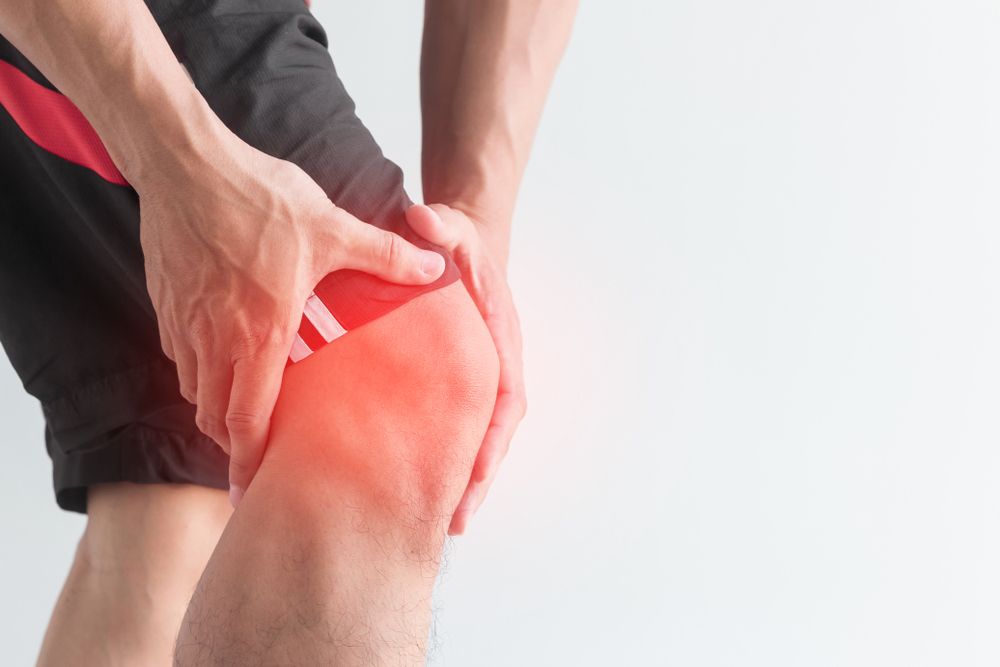[vc_row][vc_column][vc_column_text]The MCL is one of the four ligaments that are important in the stabilisation of the knee joint. It runs along the inside of the knee and joins the thighbone (femur) to the shinbone (tibia). It’s function is to resist forces applied to the outside of the knee and to prevent the inside of the knee joint from widening under this stress.

MCL injuries often result from an impact to the outside of the knee where the force is too great for the ligament to resist, resulting in a strain, partial tear or rupture, in severe cases.
MCL injuries are associated with pain and swelling at the inside of the knee and potentially a feeling of instability of the knee.
Diagnosis
If you have injured your knee your physiotherapist can run through specific orthopaedic tests to assess the knee and the integrity of the structures around the knee. If there are multiple structures involved or any uncertainty then an MRI may be necessary in some cases.
Classification Grades
Grade I (less than 10% of fibres torn):
- Mild pain at inside joint of the knee
- Possibility of swelling
- Possibility of limping
- Tender to touch
Grade II (partial tear of the ligament):
- Moderate pain at the inside joint of the knee
- Swelling
- Limping
- Feeling of instability
- Tender to touch
Grade III (full rupture of the ligament):
- Severe pain
- Marked swelling
- Knee giving way
- Tender to touch
Treatment
Immediately after the injury you want to control the swelling with rest, ice, compression and elevation of the knee for the first couple of days. At the WA Physio Group our physios can assess your knee and determine the best treatment for the grade and stage of the injury. If needed we can also refer for imaging, such as X-ray, Ultrasound or MRI depending on your individual situation.
Depending on the severity of the injury you may need to use crutches and/or a brace to help to de-load the knee and to promote healing of the ligament. We have a range of hinged knee braces and crutches always in stock which can be expertly fitted by our physios so that your knee can be protected appropriately without delay.
The most important thing during your recovery will be to maintain the range of motion of your knee so it doesn’t stiffen up. Your physio will guide you on the best exercises to keep your knee mobile without stressing the repairing ligament. When ready, we can start a targeted strengthening program and then work to get you back to your full functional capacity based on your personal goals.
Even more severe MCL injuries can often be treated conservatively in a brace. Surgery may be considered If there is involvement of other structures in the knee that are going to be operated on. Surgery is most common in professional athletes as there may be a quicker recovery time, but there are always risks to be considered when undergoing surgery.
Management after surgery will include a brace and then progressively working to improve range of motion, strength and function with an individualised exercise program, based on your goals.[/vc_column_text][ultimate_spacer height=”50″ height_on_mob=”50″][/vc_column][/vc_row][vc_row][vc_column width=”1/2″][vc_single_image image=”5115″ img_size=”large” label=””][/vc_column][vc_column width=”1/2″][/vc_column][/vc_row][vc_row full_width=”stretch_row” wrap_container=”yes” text_align=”left” el_id=”our-team” el_class=”colored animate”][vc_column width=”1/3″][vc_single_image image=”4923″ img_size=”full” alignment=”center” el_class=”m-b-none” label=””][ultimate_spacer height=”40″ height_on_tabs=”30″ height_on_tabs_portrait=”20″ height_on_mob_landscape=”20″ height_on_mob=”20″][porto_buttons btn_title=”BOOK ONLINE NOW” btn_link=”url:https%3A%2F%2Fhealthengine.com.au%2Fphysiotherapist%2Fwa%2Fmundaring%2Fmundaring-and-hills-physiotherapy%2Fs62196||target:%20_blank|” btn_align=”porto-btn-center” btn_title_color=”#ffffff” btn_bg_color=”#77d1b9″ btn_hover=”porto-btn-fade-bg” el_class=”m-b-none”][/vc_column][vc_column width=”2/3″ text_align=”left”][ultimate_spacer height=”0″ height_on_mob_landscape=”15″ height_on_mob=”15″][porto_ultimate_heading main_heading=”Jess Gold” alignment=”left”]
[/porto_ultimate_heading][vc_column_text]
Jess graduated from the University of Notre Dame with a Bachelor of Physiotherapy (Honours). She has worked as a Physio at Royal Perth Hospital and has been teaching Pilates for 6 years.
Jess is passionate about providing an individualised approach, focusing on getting patients back to doing the things they value most. She integrates manual therapy and exercise and enjoys incorporating Pilates into her rehab programs where appropriate.
In her free time Jess is probably obsessing over her 2 pet bunnies or enjoying the great outdoors.
[/vc_column_text][/vc_column][/vc_row]

